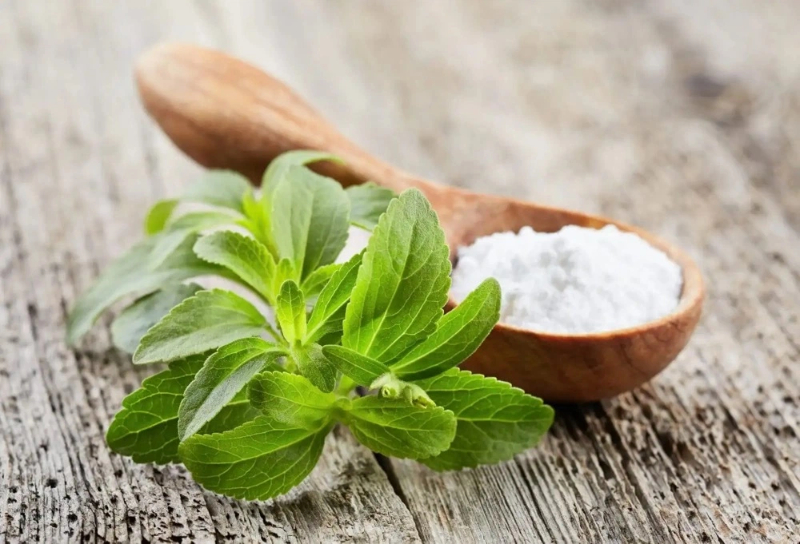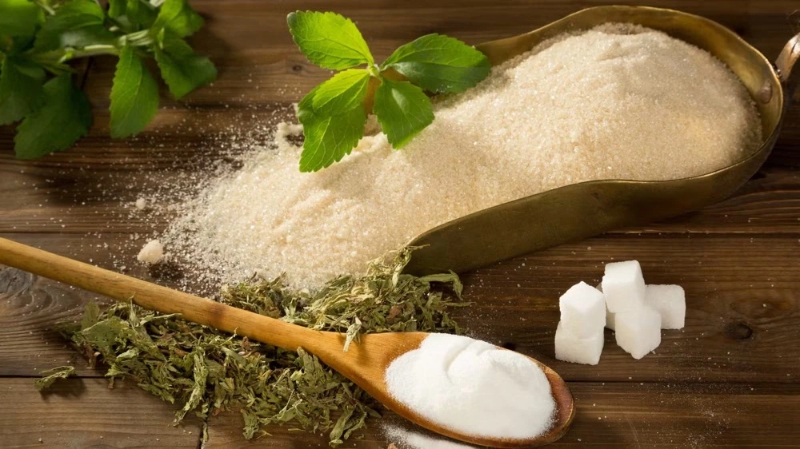Views: 222 Author: Sara Publish Time: 2025-10-04 Origin: Site








Content Menu
>> Supports Blood Sugar Management
>> Exhibits Antioxidant and Anti-Inflammatory Properties
>> May Improve Cardiovascular Health
>> Potential Anti-Cancer Effects
● Potential Risks and Side Effects of Stevia
>> Blood Pressure Considerations
>> Allergic Reactions and Sensitivities
>> Limited Long-Term Human Data
● FAQ
>> 1. Is stevia safe for people with diabetes?
>> 2. Can stevia help with weight loss?
>> 3. Are there any side effects of taking stevia?
>> 4. Does stevia affect gut bacteria?
>> 5. Can stevia be used in cooking and baking?
Stevia has become a widely accepted natural sweetener alternative to sugar, especially among individuals seeking healthier dietary options. Extracted from the leaves of the Stevia rebaudiana plant native to South America, stevia is known for its intense sweetness without the calories or carbohydrates that table sugar contains. This article aims to explore the question, "Is Stevia good for your health?" by examining both the benefits and potential risks associated with its use, supported by scientific findings and clinical evidence.

Stevia is a natural, non-nutritive sweetener derived from the Stevia rebaudiana plant leaves. Its sweetness comes from compounds called steviol glycosides, which are estimated to be 200 to 400 times sweeter than sucrose (table sugar) but contain nearly zero calories. Because of these properties, stevia has become popular worldwide as a sugar substitute in beverages, foods, and dietary supplements. It has a very low glycemic index and does not cause rapid spikes in blood sugar, making it particularly appealing to people with diabetes or those on low-glycemic diets.
One of the key health benefits of stevia is its positive impact on blood sugar regulation. Numerous studies have shown that stevia consumption can reduce blood glucose levels and enhance insulin sensitivity, especially in diabetic and prediabetic individuals. For instance, an aqueous extract of stevia leaves significantly lowered fasting and random blood glucose levels in diabetic rat models by improving pancreatic β-cell function and insulin secretion. Steviol glycosides interact with TRPM5 receptors in pancreatic islets to enhance insulin release in response to glucose, supporting better glycemic control without causing hypoglycemia when glucose levels return to normal.
Stevia contains no calories, which helps reduce overall calorie intake when it replaces sugar in foods and drinks. This makes it a popular choice for weight management. In animal studies, stevia administration decreased weight gain, reduced total cholesterol, triglycerides, and low-density lipoprotein (LDL) cholesterol while increasing high-density lipoprotein (HDL) cholesterol levels. The mechanism includes improved lipid metabolism as stevia stimulates carnitine levels, which facilitate fatty acid oxidation. However, human studies present mixed results concerning appetite and satiety effects, requiring more long-term research to confirm stevia's practical impact on weight loss.
Stevia contains compounds that exhibit antioxidant activity, helping neutralize harmful free radicals and reducing oxidative stress. These antioxidants can decrease lipid peroxidation, protein oxidation, and inflammation markers, which are implicated in various chronic diseases. For example, studies have demonstrated that stevia leaf extracts reduce DNA damage caused by oxidative agents and show protective effects on liver and kidney tissues in diabetic animal models.
Stevia has been shown to lower blood pressure in people with mild to moderate hypertension, supporting cardiovascular health. It also improves lipid profiles by reducing LDL cholesterol and triglycerides. In obese insulin-resistant mice, stevioside supplementation reduced the development of atherosclerotic plaques by enhancing insulin signaling and antioxidant defenses, possibly lowering the risk of heart disease in humans.
Laboratory research suggests that stevia extracts may inhibit the growth of certain cancer cells by inducing apoptosis (programmed cell death). While test-tube and animal studies have found stevia components effective against breast, colon, and prostate cancer cells, evidence in humans remains preliminary and requires further clinical evaluation.
Unlike sugar, stevia does not promote tooth decay or cavity formation. Studies have found it capable of inhibiting the growth of oral bacteria responsible for dental caries. This makes stevia a favorable sweetener for maintaining oral hygiene compared to traditional sweeteners.

Some individuals may experience gastrointestinal side effects such as bloating, gas, nausea, or diarrhea with large amounts of stevia, especially when combined with other ingredients like sugar alcohols. These effects are generally mild and dose-dependent.
Although stevia may help reduce high blood pressure, it could be problematic for people with hypotension (low blood pressure). Such individuals should monitor their blood pressure closely or consult medical professionals before using stevia regularly.
Recent studies have shown mixed results regarding stevia's impact on gut bacteria. Some data suggest minimal changes in gut microbiota composition after regular stevia consumption, while other research indicates potential mild inhibition of beneficial bacteria. However, a 2024 human study reported no significant alteration in gut microbiota diversity or composition after 12 weeks of steady intake of stevia as a non-nutritive sweetener.
Though rare, allergic reactions to stevia have been reported, including symptoms like headaches, dizziness, and numbness. These cases highlight individual variability in tolerance and the need to start with small amounts when introducing stevia into the diet.
While extensive animal and in vitro studies support stevia's safety and benefits, long-term human clinical trials are still limited. More comprehensive research is necessary to fully establish stevia's effects over extended periods and in diverse populations.
- Begin consumption with small amounts to assess individual tolerance.
- Prefer pure stevia extracts over whole leaf products, as whole stevia leaves and crude extracts may have adverse effects.
- Consult healthcare providers if taking medications for diabetes, blood pressure, or other conditions that might interact with stevia.
- Use stevia as part of a balanced diet and avoid excessive intake.
- Opt for stevia products without added sugars, fillers, or sugar alcohols to minimize side effects.
Stevia is a natural, zero-calorie sweetener offering numerous health benefits, especially for blood sugar management, weight control, cardiovascular health, and antioxidant support. It is a promising alternative to sugar and artificial sweeteners, particularly for people with diabetes or those seeking calorie reduction. However, some individuals may experience mild side effects, and long-term human studies are needed for fuller safety assessments. Used mindfully, stevia can be a healthy part of a balanced diet.

Yes, stevia does not raise blood sugar levels and may improve insulin sensitivity, making it suitable for diabetics when consumed appropriately.
Stevia's zero-calorie nature can reduce calorie intake, aiding weight management, but evidence on its practicality for significant weight loss is mixed and warrants further research.
Mild side effects can include digestive discomfort, low blood pressure, or rare allergic reactions. These effects depend on individual sensitivity and dose.
Recent studies show that moderate stevia consumption does not significantly alter gut microbiota, but further research is ongoing to fully understand its impact.
Yes, stevia is heat-stable and suitable for cooking and baking, though it may have a different sweetness perception and aftertaste compared to sugar.
[1](https://pmc.ncbi.nlm.nih.gov/articles/PMC8600158/)
[2](https://pmc.ncbi.nlm.nih.gov/articles/PMC4890837/)
[3](https://www.webmd.com/food-recipes/what-is-stevia)
[4](https://health.clevelandclinic.org/what-is-stevia)
[5](https://www.sciencedirect.com/science/article/abs/pii/S0924224420304593)
[6](https://www.sciencedirect.com/science/article/abs/pii/S187140212400153X)
[7](https://www.news-medical.net/news/20240122/Sweetener-Stevia-does-not-alter-gut-microbiota-composition-confirms-new-study.aspx)
